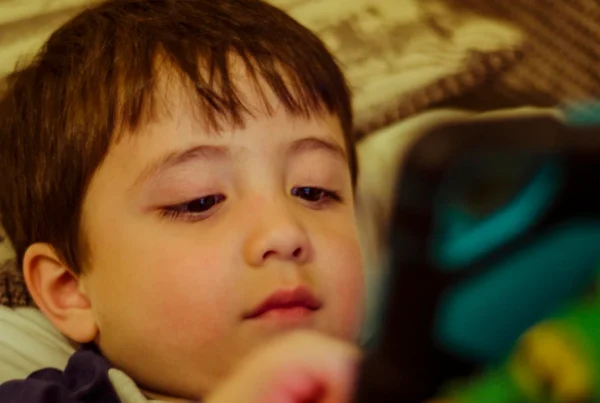For many parents, setting boundaries for children can feel challenging. It is often difficult to say “no” or hold firm when a child pushes limits.
Yet boundaries are essential for a child’s growth, shaping them into individuals who are secure, respectful, and prepared to thrive.
Far from being restrictive, boundaries create the structure and safety children need to develop independence and confidence. When parents approach this with wisdom and love, boundaries become a gift rather than a burden.
Read also: 3 Simple Ways to Set Healthy Social Media Boundaries for Your Child
Boundaries, Rules, and Punishment: What’s the Difference?
When we talk about setting boundaries for children, it is important to distinguish them from rules or punishment. While all three play roles in parenting, they are not the same.
Boundaries are about teaching children what is acceptable and what is not. They define the “safe zone” where children can make choices while still learning responsibility. For example, a boundary might be: “You can play outside after finishing your homework.” It gives children freedom within a framework.
Rules, on the other hand, tend to be more rigid and specific. For instance: “No phone use at the dinner table.” Rules are necessary, but they often exist within the larger framework of boundaries.
Punishment differs entirely. It is a response to disobedience or breaking the rules, often with negative consequences attached.
Healthy parenting, however, does not focus solely on punishment but emphasizes teaching and guiding through consistent boundaries. While punishment addresses behavior after the fact, boundaries proactively shape behavior before problems arise.
The Biblical Foundation for Setting Boundaries for Children
Boundaries are not only practical but also deeply biblical. Scripture consistently teaches about order, discipline, and love.
Just as God sets boundaries for His people as in guidelines for holy living, relationships, and worship, parents are called to do the same for their children. These boundaries are never meant to stifle but to protect and lead toward flourishing.
Proverbs 22:6 reminds us: “Start children off on the way they should go, and even when they are old they will not turn from it.”
Boundaries guide children along the right path, preparing them for a life rooted in God’s words.
Similarly, Ephesians 6:4 encourages parents: “Do not exasperate your children; instead, bring them up in the training and instruction of the Lord.” Boundaries are most effective when motivated by love, not frustration or control.
In God’s design, discipline is always paired with care. Hebrews 12:6 says, “The Lord disciplines the one he loves.” When parents set boundaries, they reflect God’s loving nature, teaching their children that order and discipline are part of a life lived in peace and harmony.
 5 Practical Tips for Parents: How to Set Healthy Boundaries
5 Practical Tips for Parents: How to Set Healthy Boundaries
Setting boundaries does not mean being harsh or trying to control every action. Instead, it is about approaching boundary setting in a loving and consistent way, so that children grow with clarity, self awareness, and self control.
When healthy boundaries are practiced at home, kids learn responsibility, respect, and the importance of caring for both their own feelings and the child’s feelings.
Here are five practical ways many parents can set effective boundaries that support growth, security, and mental health:
1. Be Clear and Consistent
Children need clear expectations. Mixed messages or inconsistent rules can confuse a child and weaken trust.
When parents set firm boundaries the same way each time, it gives children a sense of security and stability.
It’s also important that mom and dad present a united front. When parents communicate and agree on rules together, children hear one voice instead of two conflicting ones.
This consistency helps children feel safe, reduces confusion, and shows them that boundaries are steady and reliable. With this clarity, children understand what is expected, can follow rules, and begin to build independence.
Read also: Responsive and Gentle Parenting: A Christian Guide to Raising Emotionally Healthy Kids
2. Use Positive Language
When discussing boundaries, avoid only saying what kids cannot do. Instead, explain what they can do.
For example, instead of saying “Don’t shout in the house,” try, “Please use your indoor voice.”
This kind of positive reinforcement makes boundary setting feel less controlling and more encouraging. It helps a child learn to respect limits, respect others’ limits, and develop healthy habits that will become second nature.
3. Model the Behavior You Expect
Children notice what adults do more than what they say. When parents set rules about screen time, healthy play, or daily routines, they should also follow suit.
For example, if a parent expects less phone use, they must show the same way by limiting their own usage.
When children see adults living out the same standards, they understand that important boundaries apply to everyone.
This consistency between words and actions helps children understand consequences and builds trust within the family.
4. Encourage Dialogue
As young people grow, it is important to talk with them and allow them to discuss boundaries.
When children share their own boundaries, own needs, or concerns, parents can listen carefully and explain why certain rules matter.
This kind of conversation shows respect, teaches children how to respect boundaries, and builds meaningful relationships.
It also gives space for them to understand responsibility, understand consequences, and see that rules are not meant to make parents the “bad guy” but to protect and guide them.
5. Pair Boundaries with Love
Effective boundaries are always paired with encouragement and care. Without love, limits may feel like control or punishment.
But when parents set rules with kindness, kids learn that boundaries exist because their parents want what is best for them. Pairing setting limits with love communicates safety, builds trust, and helps children feel supported.
Over time, helping your child see the importance of boundaries will make following them feel natural and even sounds fun, especially when routines are connected with encouragement and positive reinforcement.
God’s Boundaries as a Model for Parenting
When parents practice setting boundaries for children, they mirror God’s way of guiding His people. God’s commandments and instructions provide boundaries that are rooted in love and lead to blessing.
Far from restricting freedom, His boundaries show the way to true life and joy. Psalm 16:6 declares, “The boundary lines have fallen for me in pleasant places; surely I have a delightful inheritance.”
In the same way, boundaries in family life create a safe and nurturing environment. They teach children that freedom comes with responsibility, and discipline is an expression of love. Parents who set healthy boundaries help their children discover that limits are not a form of punishment but a pathway to peace.
Read also: The Importance of Parenting Education: Parents as Lifelong Learners
Partner with a School that Guides Your Child in Boundaries and Faith
Though setting boundaries for children may be difficult, it is one of the greatest acts of love a parent can offer.
Boundaries differ from rules and punishment by focusing on guidance and growth rather than mere control. Grounded in biblical principles of order, discipline, and love, they create the structure children need to flourish.
When parents set boundaries with clarity, consistency, and compassion, they prepare their children for independence, responsibility, and a life rooted in God’s truth.
Just as God gives His people boundaries for their good, parents who lovingly guide their children can trust that these efforts will bear fruit in peace, resilience, and maturity.
At Sekolah Pelita Harapan, we believe that healthy boundaries, combined with strong academics and faith-based values, provide children with the foundation to thrive.
If you are considering an international middle school that nurtures both character and competence, SPH is here to walk alongside your family. As an international Christian school, we are committed to equipping students with the skills and spiritual grounding they need for life.
Contact our SPH team today to learn more about how we can support your child’s journey of growth, faith, and independence!









